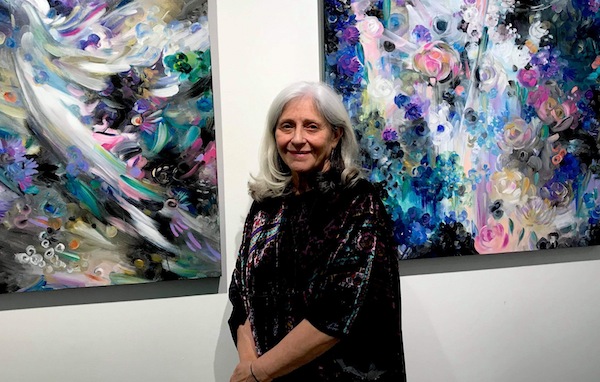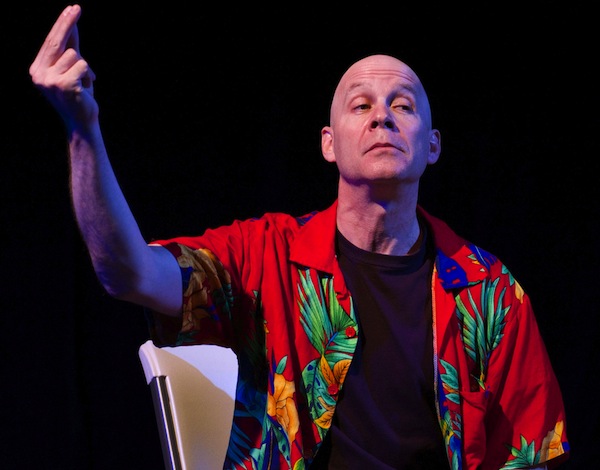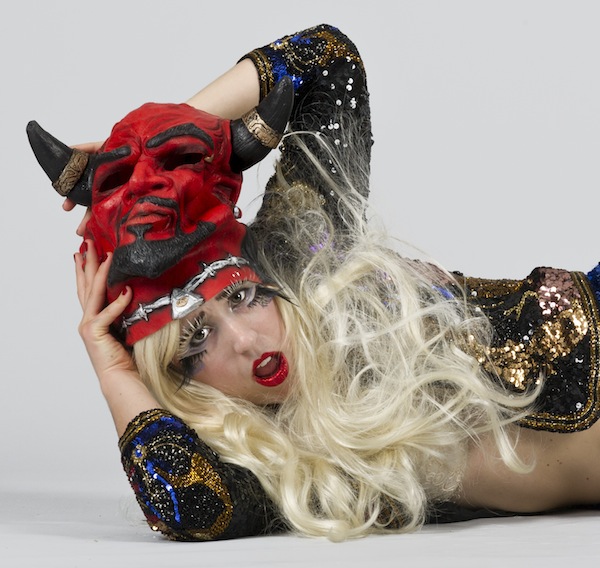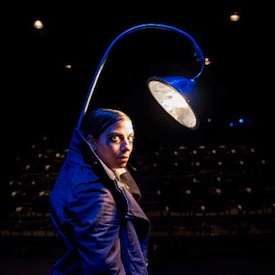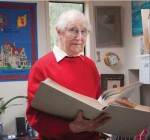Peter Gary (photo from Peter Gary)
April is a month of miracles for Peter Gary. An April baby, he was born in Poland in 1924, where he first developed his love – and talent – for playing music and composition. Starting piano by age 5, he was accepted into the Franz Liszt Royal Academy at age 11, being chosen to attend classes with Bela Bartok, Zoltan Kodaly and Leo Weiner. In 1941, however, Gary and his mother were arrested by the Nazis. His mother was murdered soon after, trying to protect him. After surviving the Warsaw Ghetto, Gary, who was in his late teens, was sent to Majdanek, then Dachau and, finally, Bergen-Belsen. He was liberated from there in April 1945, just as he turned 21 years old.
Following more music studies in Paris and a career in medicine in California, where he eventually settled, Gary retired in Victoria, B.C. For many years, he chose not to speak about his Holocaust experiences. Instead, in the mid-1970s, he returned to his love of music to compose something that would help express the immensity of the losses he experienced and the loss of six million fellow Jews. A Twentieth Century Passion will at long last be performed – on April 2 at the University of Victoria. It took 40 years to bring this 500-plus-page piece of music to the stage. And it almost didn’t happen at all.
“Gary’s musical composition takes the form of an oratorio. A Twentieth Century Passion not only draws on the works of famous German composers such as Bach, Handel and Mendelssohn, but also represents a musical intervention to that tradition. Instead of portraying the gospel narrative of the Passion, this oratorio focuses on the emotions and suffering of European Jews during the Shoah.”
UVic has put together a booklet on Gary’s composition and describes its immense scope. “Gary’s musical composition takes the form of an oratorio. A Twentieth Century Passion not only draws on the works of famous German composers such as Bach, Handel and Mendelssohn, but also represents a musical intervention to that tradition. Instead of portraying the gospel narrative of the Passion, this oratorio focuses on the emotions and suffering of European Jews during the Shoah. The libretto includes a composite of stories and perspectives – of men and women, young and old – beginning from the end of the First World War up until the end of the Nuremberg trials. In particular, A Twentieth Century Passion remembers and honors the lives of the murdered children.”
April is a significant month for Gary in other ways, as well. He and his wife, Judy Estrin, will celebrate their seventh wedding anniversary the day before A Twentieth Century Passion is performed for the first time – just two weeks before the composer’s 90th birthday.
The couple met on JDate and decided to marry after a brief online courtship, Estrin told the Independent. “We finally met in December 2006. As Peter’s mother was murdered on Christmas Eve, that has always been a difficult time for him. We opted to ‘say our vows’ to each other at approximately the time that corresponded to her murder on Christmas Eve, including exchanging rings. For us, that is the day we were married.” However, “on April 1, 2007, in the rain, hail, sleet and snow, we had an outdoor wedding, under a chuppah in our yard, followed by a civil ceremony on June 1, 2007.”
Gary credits Estrin for having the tenacity to get his oratorio to the stage, and it wasn’t an easy task.
“I tried to get orchestras interested in the piece when we first were married, to no avail,” she said. “We agreed that we had to let go of the vision of having a performance of A Twentieth Century Passion in his lifetime – which was my promise to him when we married. So, we let go, with the provision that if the universe wanted him to experience his piece in his lifetime, the universe would make it happen.”
How the concert possibility came about
It was during a visit with two UVic students that Gary unearthed his score, long since put away. The students, Jason Michaud and Andrea van Noord, were part of UVic’s month-long I-Witness Holocaust Field School Project, a program co-founded in 2011 by Helga Thorson, associate professor in the department of Germanic and Slavic studies. The project, which “focuses on the ways in which the Holocaust is memorialized in Central Europe,” sees students spending the first week together in Victoria and then “three weeks on the road in Central Europe, where we visit the sites of former concentration camps, museums, monuments, cemeteries and other memorialization projects,” Thorson explained to the Independent. “Along the way, the students meet young Europeans who are also studying the Holocaust and engage in cross-cultural dialogues about the relationship between the present and the past.”
It was during a visit with two UVic students that Gary unearthed his score, long since put away. The students, Jason Michaud and Andrea van Noord, were part of UVic’s month-long I-Witness Holocaust Field School Project, a program co-founded in 2011 by Helga Thorson, associate professor in the department of Germanic and Slavic studies.
She added, “During the 2011 field school, [Michaud and van Noord] came up to me separately and said pretty much the same thing – without realizing that the other one had approached me, as well. They both mentioned that they wanted to work on some form of Holocaust remembrance and education when they returned to Victoria. After the field school program, the three of us sat down together and decided to found an archival project in which we would collect local stories of the Shoah in Victoria and on Vancouver Island. It was in this context that we visited Peter Gary.
“During this visit … we explained our ideas for the archival project. We told him that our project was different from other projects that had taken place…. It was not our intention to repeat the work that others had already done. Our project, called Building an Archive: Local Stories and Experiences of the Holocaust, was interested in collecting the stories of individuals whose lives were affected by the Shoah, either as told by themselves directly or as told by their children, grandchildren or great-grandchildren….
“It was during this visit when Peter got up, ran to the other room, and came back with a copy of his oratorio…. Van Noord took the oratorio and brought it around to various musicians and conductors. She was the one who brought it to the attention of Timothy Vernon, the founding artistic director of Pacific Opera Victoria, who has agreed to conduct the piece during the April 2, 2014, première.”
Thorson said the university is “amazed at the diverse material we have collected for our archival project to date: from Peter Gary’s musical composition, to copies of art that was created in Bergen-Belsen, to an interview with three generations of one family, to many other stories in myriad creative formats. The entire collection is remarkable in a community as small as Victoria. Peter Gary’s musical score and libretto comprise a special part of the university archives because, as an oratorio, this musical composition represents an ambitious project dedicated to Holocaust remembrance and memorialization.”
About the university’s interest in her husband’s work, Estrin said, “It wasn’t me who made this dream come true. There are so many miracles that have manifested along the way. Helga Thorson, her students Jason and Andrea from the first I-Witness Field School, Timothy Vernon agreeing to conduct without having ever seen the piece, so many people, so many miracles.”
The plans don’t stop with the April 2 concert, she added. “Now, we have to have all the funds in place to pay for the concert itself and to fund a scholarship that the University of Victoria has established for the field school, in Peter’s name. Once we get to some surplus funds, then we can think about establishing a process to bring the music to the world, free of charge, to anyone who wants to produce it. Then, we’d like to develop a curriculum for middle and high school students. Hopefully, we will also have enough excess funds to complete the documentary that is in process to document how this all came about. If an angel appears, the last wish in my vision is to be able to have Timothy Vernon conduct the piece and produce a CD. A big dream at the moment!”
She admitted, “There have been moments when it was totally overwhelming for Peter, which is why, after three fundraising events and a number of interviews, he is ‘off the hook.’ He is excited about it finally happening, although I suspect he has his moments of total disbelief, as it came close in the past but did not happen. We both hope that the piece makes people think and talk – about hate, about racism, and about antisemitism…. My hope is that after this world première performance, A Twentieth Century Passion will become the piece played around the world to memorialize and remember the Six Million, at least once a year, ideally played on Yom Hashoah.”
A fundraising event
One of the fundraisers was held in November at the home of Vancouver community members Dr. Michael and Linda Frimer, friends of Gary and Estrin, who came over from Victoria to participate. The Independent also attended the event, which featured music performed by cellist Eric Wilson and pianist Corey Hamm. Estrin spoke about her admiration for her husband and the life he’s poured into the music, and her delight at finally seeing the composition come alive this April.
Michael Frimer introduced Gary, noting, “He’s been our close, close friend for many years and an inspiration for our whole family. I’d say, the biggest inspiration for me, except for the 50 push-ups a day, is the fact that, from where he came, which is such a dark, dark place, he has such an amazing ability to look on the positive and the good, and to find the good where you would not expect it….
“This oratorio is really, I think, of potential historic significance…. This has been sitting for over 40 years now, and Peter’s been talking about it for so long. To have it finally come to fruition is amazing…. You think of Handel’s Messiah, which is a great piece of work written about this one Jewish rabbi, and it’s played every single year throughout the world, which is a wonderful thing, but I am hoping and I can see and envision this becoming something that is played on a regular basis in perpetuity in the capitals of the world to remember the lessons of this event that happened and the lessons that we have to take forward in the future.”
Peter Gary speaks about his work
Gary addressed those present, as well, and read selections from the oratorio’s libretto. “This is not about me,” he said. “The moment I put the last note down and put the double line, which means it’s finished, it has nothing to do with me anymore, it’s ‘it.’ And the next time, when Timothy Vernon, a very well-known Canadian conductor, raises his two arms, it’s his. It’s whatever his creativity, his insights [dictate]. Yes, we will have meetings and I will answer the questions, how do you envision this, but after that, it’s done. It has to exist and run on its own.”
Gary then read from notes he had written on his hopes for future generations. “How do you explain the inexplicable, the horrors that humanity brought and brings downs on its members? We are bombarded by the media in full graphic detail, in real time, the most horrific cruelty and suffering from time immemorial into our 21st century. The Shoah … was introduced to our history as a uniquely barbaric act. Unlike in wars before, it targeted strictly innocent children, women, men, the old, sick, for systematic torture and murder by the millions, not for what they did but who they were.
“Ever since the discovery at the end of World War Two of this permanent stain on human culture, without blinking an eye, we are still involved, as I’m speaking, and stoking the fires of death and destruction on each other. Is there a wonder why the public becomes bored as these acts are blaring at them from the pictures of newspapers, their television sets, computers and all other gadgetry of communication. Just to mention a few from the 20th century to the present: mass murder of the Armenians, Balkans, Congo, Sudan, Syria, Libya, many, many others.
“Back to the Shoah. We have been presented with vivid details from history books to films, novels, poetry, survivor personal testimonies, and some musical compositions, but only dealing with specific areas, like the piece on Terezin, which was the Nazi show camp. I have aimed, with A Twentieth Century Passion, to unify all those components. From history to the prisoners’ daily lives, their feelings, anxieties, fears, angers, of those abuse[d] … and, of course, always the unanswerable whys.”
“Back to the Shoah. We have been presented with vivid details from history books to films, novels, poetry, survivor personal testimonies, and some musical compositions, but only dealing with specific areas, like the piece on Terezin, which was the Nazi show camp. I have aimed, with A Twentieth Century Passion, to unify all those components. From history to the prisoners’ daily lives, their feelings, anxieties, fears, angers, of those abuse[d] … and, of course, always the unanswerable whys.
“This, I felt was only possible to achieve in the musical form of the oratorio,” he continued. “The oratorio, mass, requiem, Passion, comes to us in the Christian musical literature, in great compositions from Bach to Bernstein, Mozart, Beethoven, Dvorak, and many others. A Twentieth Century Passion was created incorporating all general and personal details in this musical form. In Latin, verba volant, scripta manent, words fly away, writing stays forever. I hope this music will bring for all times a memorial as well as a warning to humanity. I have begged over 66,000 young and old [as a survivor speaker] to stamp out hate, the most obscene word in the English language, if we want our children and grandchildren to survive on our planet.”
In an e-mail to the Independent, Linda Frimer shared her reflections on supporting their friend in bringing A Twentieth Century Passion to life. “We feel honored and privileged to have Peter in our lives,” she said. “Through the years, he has been an outstanding mentor and friend. He teaches, through his strength of character and noble heart, that one must never give in to the perpetrators of cultural genocide. By actively choosing to make his life a joy-filled creative service to humankind, he inspires others to give of themselves. The upcoming oratorio this April is the full flowering of the tree of his life, for through his composition he is ensuring that not only will those of all ages who perished in the Holocaust always be remembered, but the witnesses of the world, once hearing this, will be assured never to forget.”
The world première of Peter Gary’s A Twentieth Century Passion, conducted by Timothy Vernon, was scheduled for April 2. Unfortunately, it was cancelled.

